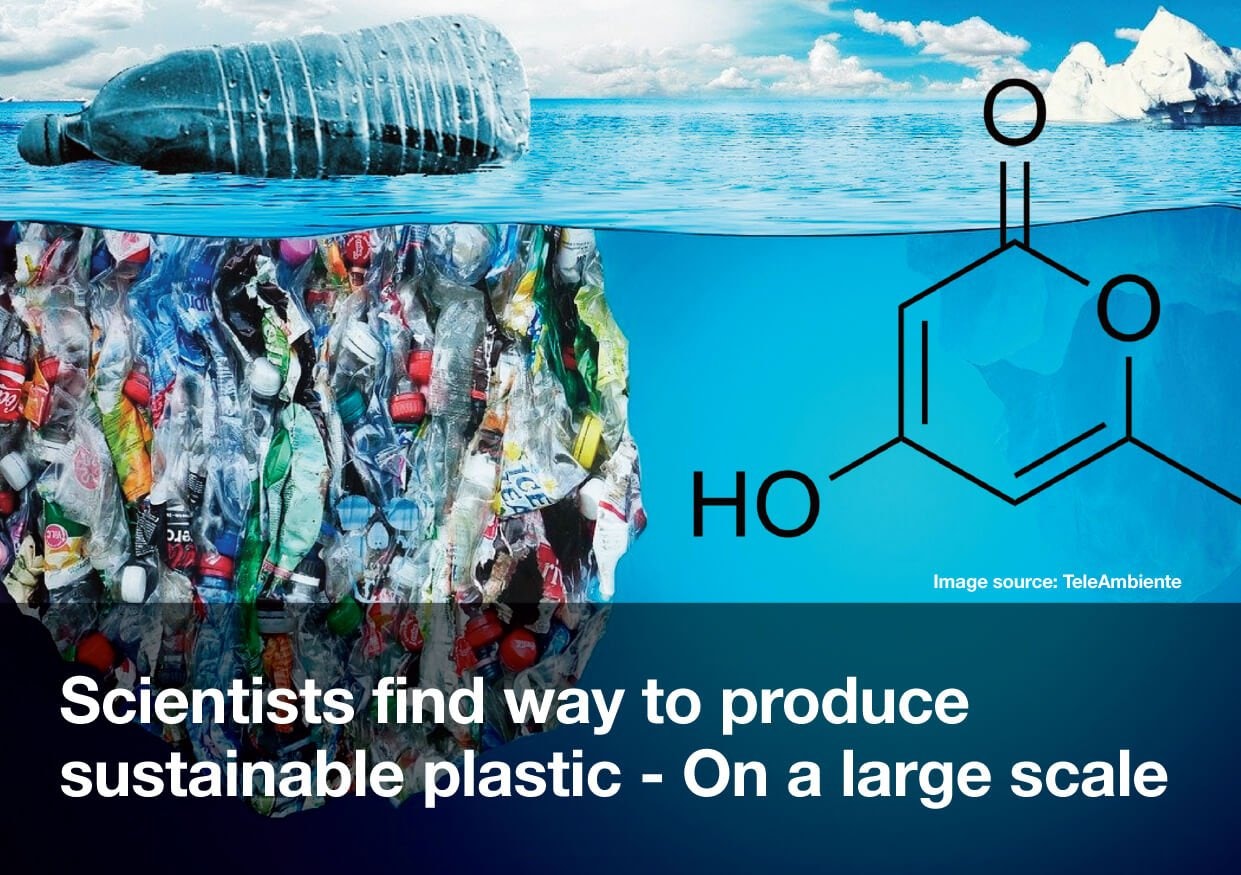Scientists Find Way to Produce Sustainable Plastic – On A Large Scale
One of the biggest pollutants and environmentally unfriendly materials that today’s society still uses in enormous quantities is plastic. Various types of plastics, their endless applications and inexpensive cost suggests its popularity for industrial usage shows no signs of diminishing.
In spite of massive criticism, plastic remains the go-to option, however, a renewable alternative could soon be within reach.
At the University of Texas at Austin, a team of chemical engineers has discovered a way to synthetically produce triacetic acid lactone (TAL), a biorenewable platform chemical. With this, the forecast for the future is that sustainable plastics as well as pharmaceutical drugs – of which TAL is a component – could be produced on an industrial scale.
This discovery came from manipulating a type of yeast to boost the production of TAL to a higher level than the natural bioproduction. By doing this and rewiring the metabolism, the production capacity and efficiency was increased tenfold, meaning where TAL can now be manufactured efficiently and cost-effectively. This was a substantial breakthrough in a field that has been trying to synthetically create TAL for a long time, where so far technology has always been a problem as manufacturing was too costly, or the rate of production was too low to allow concrete industrial applications.
Professor (and head of the team) at the university, Hal Alper says: “We hope to open up new product and industrial opportunities in the chemical and pharmaceutical spaces. Our engineering efforts in TAL showcase that we can rewire metabolism to create renewable solutions to traditional chemical manufacturing.”
With plastic being an abundant and toxic substance, Dashboard is enjoying seeing cleaner, more sustainable solutions being developed and offering viable options for application on a wider scale. As plastic is widely used across almost every industry, the implications of this discovery could be incredibly broad, and we are surprised a similar option has not been developed previously.
